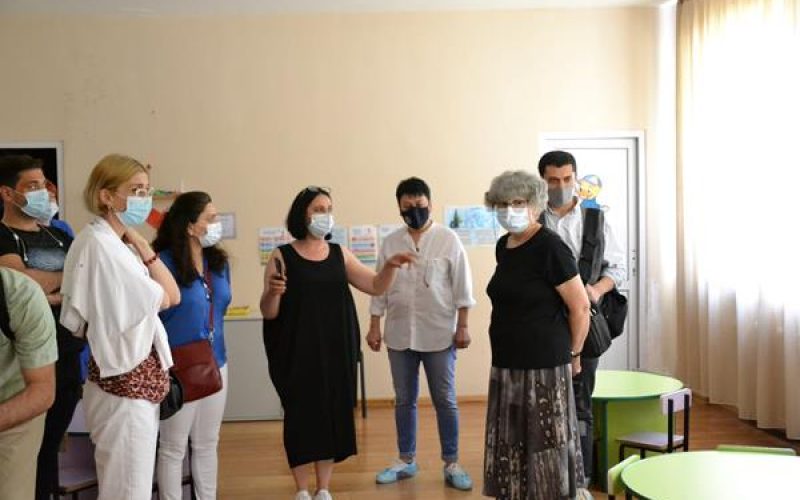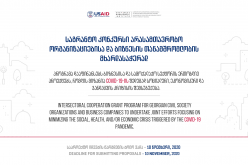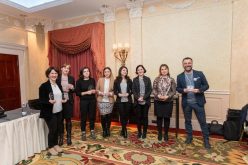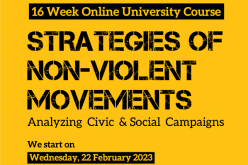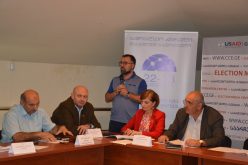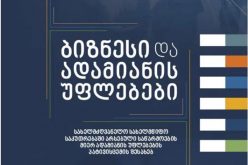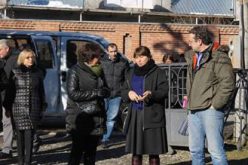On June 18-19, EWMI ACCESS, along with its partner CSO – Civitas Georgica, organized a policy forum to discuss the challenges and needs of early education institutions in Georgia during the pandemic. Representatives of the central and local governments, the National Center for Disease Control and Public Health, leading journalists of local and central TV stations, representatives of international and non-governmental organizations attended the forum.
The main topic for discussion was the survey conducted by Civitas Georgica with EWMI ACCESS support. The survey covers three main topics: 1) Management of early education institutions during the pandemic – regulations, closing and opening of the facilities; 2) distance learning – forms and practice; 3) Support of families during the pandemic.
Civitas Georgica inquired 2,413 parents and 475 kindergartens representatives from over 33 municipalities. In-depth interviews were also held with representatives of the Ministry of Education and Sciences, experts, and other stakeholders. Both public and private kindergartens were engaged in the survey. In addition, Civitas Georgica analyzed both planned and actual expenses of 10 municipalities in 2020.
During the survey period (March 2020 – March 2021), kindergartens were open for six weeks only. Pandemic regulations for kindergartens were issued on September 1, 2021, thus leaving little time for kindergarten staff to get prepared for the opening. Civil society representatives were not engaged in drafting these regulations and other guiding documents. Communication between central and municipal governments, as well as between various ministries, was also flawed.
Therefore, the majority of the inquired kindergartens find it hard to adhere to all regulations (i.e. keeping social distance between children, forbidding the use of shared items, removing educational materials). Hence, more than 40% of the surveyed kindergartens maintain old practices.
There is no diversified approach in the management of the kindergartens – all kindergartens have to adhere to unified rules and regulations regardless of their size, location, type of settlement, and epidemic situation. Such a rigid approach creates systemic problems and prevents small-sized kindergartens from functioning.
As for the second topic – the distant learning process – many kindergartens held online classes, although overwhelming majority (92%) of those inquired has not received any methodological guidance on this matter: neither teachers nor parents were taught the essence and peculiarities of distance learning in the pre-school age. Decisions in this field were made on an ad-hoc basis. Online learning was also held in locations where most families did not have access to the internet and suitable equipment.
With regards to the third topic of the survey – support to families during the pandemic – most families received food packages only. 83 % of the inquired kindergartens say that they have not distributed any learning/developmental resources to their pupils during the pandemic.
The kindergartens themselves did not receive much aid and assistance from the authorities. The significant majority received only disinfectants, though some of the kindergartens got consultations too.
The final report of the survey will be published soon. After finalizing the survey findings, Civitas Georgica and other stakeholders will develop recommendations to ensure effective management of the pre-school education institutions during pandemics and other emergencies.



